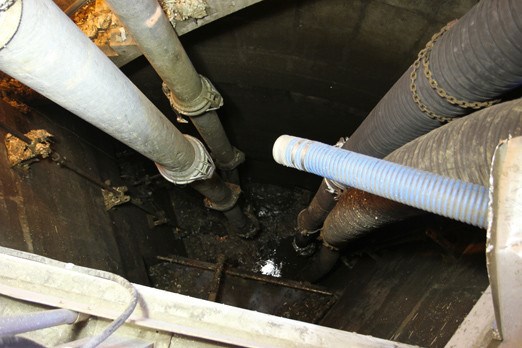It will cost the city $1.45 million to upgrade the Atlantic Avenue sewage treatment plant, according to recommendations made by an outside consultant.
A report, to be presented to council on Monday night, suggests a series of short- and long-term solutions in the aftermath of the May 28 flood disaster that overwhelmed the plant and led to massive sewage back-ups that gushed into basements in low-lying areas of the city.
Among the quick fixes is the removal of one of four screens used to filter sewage entering the plant.
“This option will reduce the available screening capacity, but will significantly increase overall hydraulic capacity. With screen No. 4 removed, this channel is clear of any obstructions and can convey flow directly to the grit tank and primary treatment,” the report’s author writes.
The move would protect plant assets against in-facility flooding, at a relatively low $50,000 capital cost.
Long-term, and much more costly, is the creation of an emergency bypass channel upstream of the screens.
“The channel would be equipped with modulating type weir gats to relieve flow in excess of the screen capacity. Flow would be diverted through a metered channel to the existing primary clarifier inlet channel,” the report says.
“An ultrasonic level sensor would be installed in the main channel to modulate the gates to maintain a high level set-point upstream of the screens.”
The design and repairs, if approved by council, are expected to take about 15 months to complete.
City council will hear a series of reports on Monday night, including a breadown of the weather preceding the flood from climatologist Graham Saunders and an engineering report from Troy Biggs of CIMA Canada, who authored the above-mentioned report.
